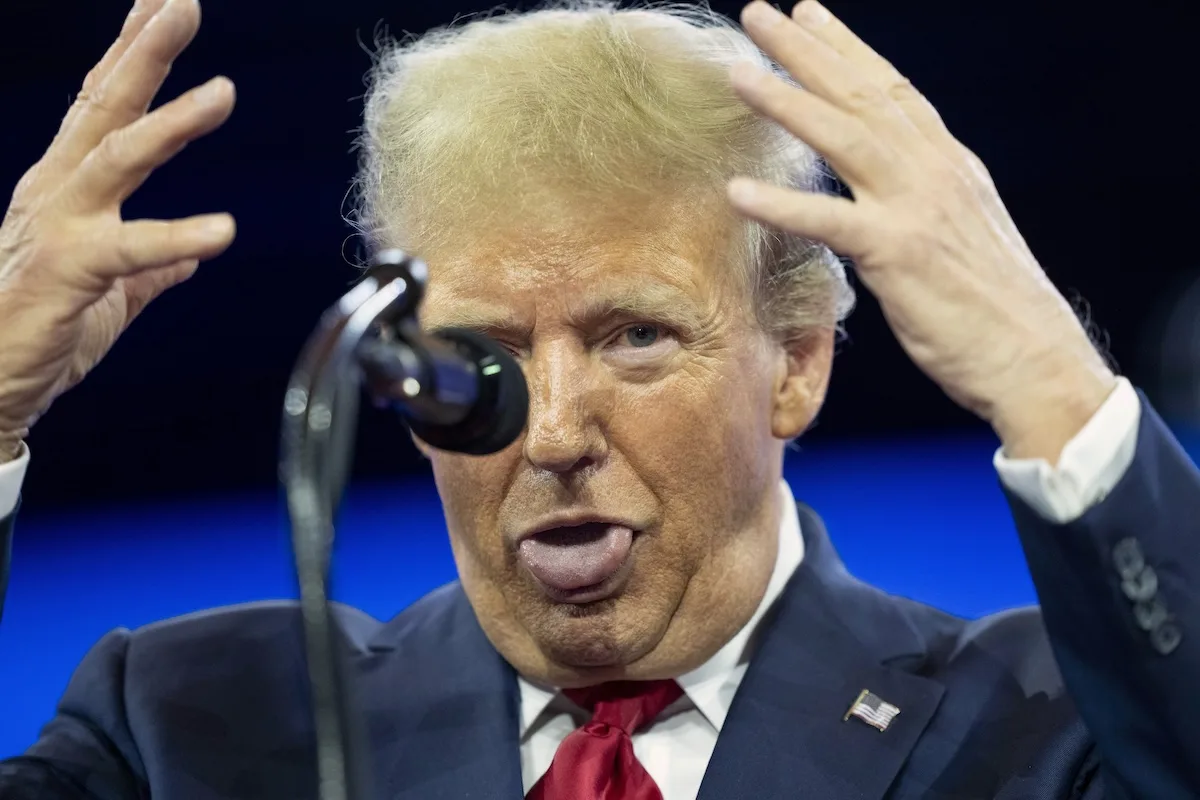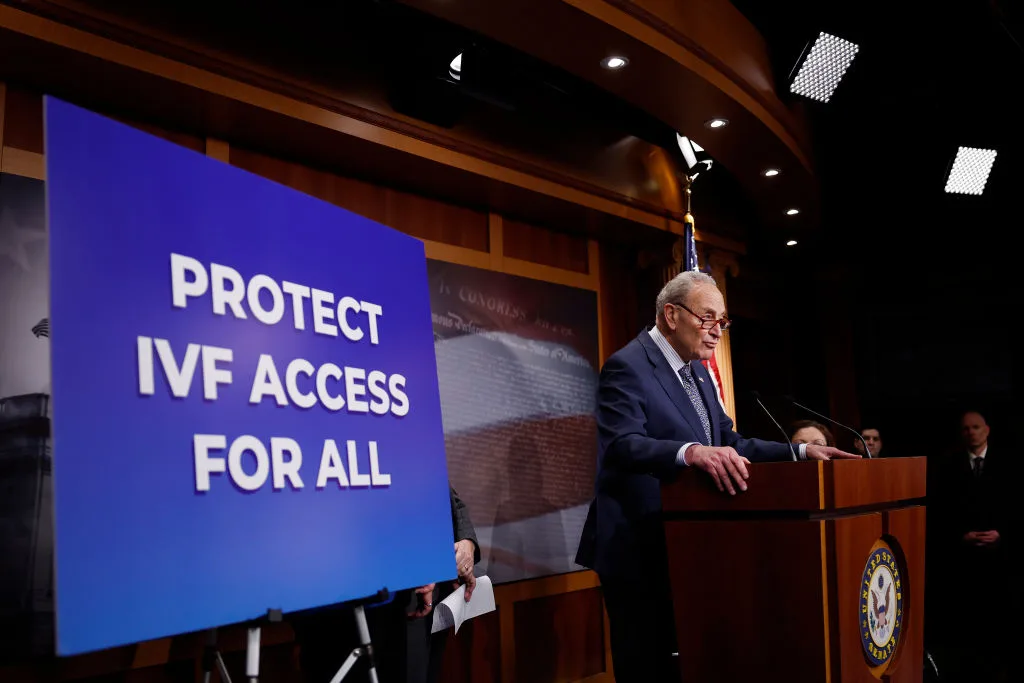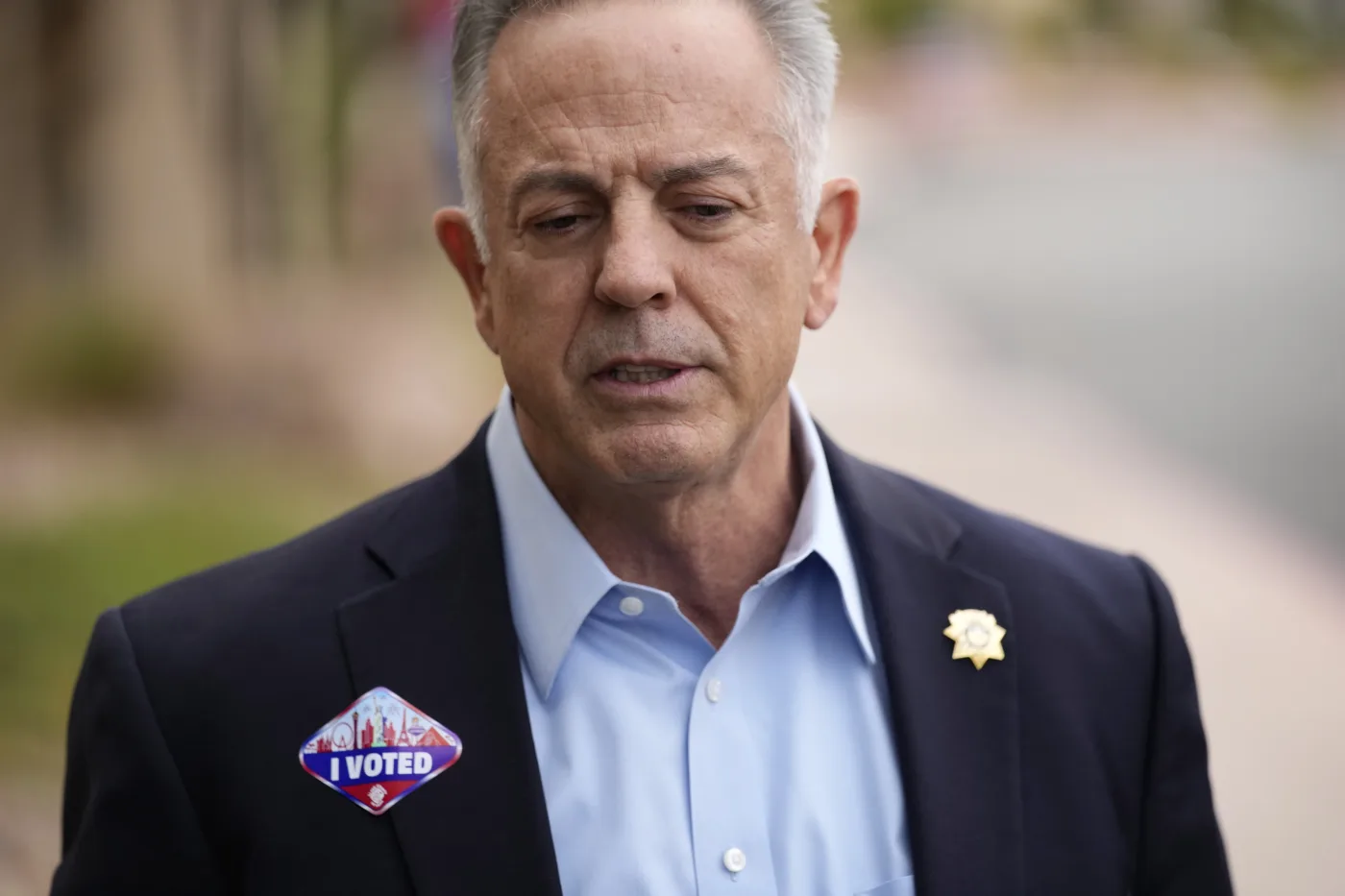
Joe Lombardo, Clark County sheriff and Republican candidate for Nevada governor, speaks with the media after voting, Nov. 3, 2022, in Las Vegas. In late September 2023, Lombardo filed a lawsuit challenging the state ethics commission’s authority to censure and fine the former Clark County sheriff for using his publicly issued sheriff’s badge during his 2022 gubernatorial campaign. (AP Photo/John Locher, File)
Gov. Joe Lombardo’s decision to use a legal defense fund created during his 2022 election campaign for an ongoing legal battle with the Nevada Ethics Commission is drawing criticism from the Nevada Democratic Party, which is accusing him of “bending the rules.”
The Republican governor first established his legal defense fund after one of his 2022 gubernatorial primary opponents, Joey Gilbert, filed a challenge against Lombardo’s primary victory.
The fund was used to pay legal fees associated with that challenge, which ultimately ended with the Nevada Supreme Court ruling against Gilbert and ordering him to pay $161,000 to cover the cost of Lombardo’s attorney fees.
According to campaign finance documents filed in September, Lombardo’s legal fund raised $85,000 in the final three months of 2022, roughly $82,500 of which was used to pay the law firm of Campbell & Williams, which represented Lombardo in the case.
Now, however, the governor is using the fund to cover legal costs affiliated with a case from the Nevada Commission on Ethics, as the Nevada Independent reported in September.
In July, the commission voted 4-2 to censure Lombardo and fine him $20,000 for improperly using his Clark County Sheriff’s badge and uniform in campaign videos and material during his run for governor, a violation of state ethics laws. Lombardo initially faced a $1.6 million fine, but the punishment was ultimately reduced and the fine revised.
Commissioners John Moran and Stan Olsen—who each had prior ties to Lombardo and were appointed to the commission by the governor weeks before the vote—were the two dissenting votes.
Stephanie Justice, the Rapid Response Director for the Nevada State Democratic Party, believes Lombardo intentionally delayed his hearing in order to “stack the Ethics Commission with his cronies.”
Lombardo appealed the commission’s ruling in September, when his attorneys filed a lawsuit in the First Judicial District Court in Carson City. In the filing, Lombardo’s attorneys don’t just challenge the censure and fine, but the constitutional authority of the commission itself, claiming that because half of the commission’s eight members were appointed by the legislature, their decision violates the state constitution’s separation of powers principle.
Lombardo’s lawsuit has drawn criticism from the state Democratic Party.
“Not only did Lombardo improperly use this legal defense fund to fight against being held accountable for his ethics violations, he’s now using it to pay for a self-serving legal appeal to the Supreme Court of Nevada that goes so far as arguing that the Ethics Commission itself should be declared unconstitutional,” Justice said in a statement.
It’s unclear how much money the fund has raised or is using to challenge the commission’s ruling, as 2023 fundraising totals aren’t required to be reported until after the first quarter of 2024.
But the Nevada Democratic Party believes Lombardo’s decision to use his legal defense fund in this fight against the commission is improper. Justice said the governor is “bending the rules” and “inviting yet another investigation into his corruption.”
Nevada law states that any leftover money from a legal defense fund must be disposed of no “later than the 15th day of the second month after the conclusion of all civil, criminal or administrative claims or proceedings for which a candidate or public officer established a legal defense fund.”
Lombardo established his fund for legal proceedings related to “election contest in the Republican primary and related claims,” according to the fund’s statement of formation.
Under state law, once the legal claims or proceedings related to the fund are resolved, the unspent money from a legal defense fund should either be returned to contributors or donated to a tax-exempt nonprofit entity. That does not appear to have happened.
Justice said that Lombardo’s questionable repurposing of the fund is part of a pattern, pointing to the governor’s decision to create a “dark money” nonprofit organization—“the Nevada Inaugural Committee”—to plan his inaugural events and later, to repurpose the organization into a vehicle for political purposes.
The Nevada Independent reported in May that the “Nevada Inaugural Committee,” was functioning as part of the governor’s political operation under a new name, the Service First Fund, and was running digital ads against Democratic lawmakers who opposed Lombardo’s policies.
A spokesman for Service First Fund told the Independent that the inaugural committee nonprofit was “repurposed for efficiency and cost purposes,” but Democrats have pointed out that Lombardo appears eager to prevent transparency into the nonprofit’s donors.
In June, Lombardo vetoed a bill that would have required state constitutional officers’ “inaugural committees” to report financial contributions and spending, similar to what is required for political committees. Under the bill, Service First would have been required to disclose its donors, but Lombardo vetoed the legislation, arguing it singled him out.
“Increasing fairness and transparency in government and elections is an important goal,” Lombardo wrote in his veto message. “That said, if transparency is truly a priority for the Legislature, it should pass legislation requiring disclosure of activities beyond a single office.”
However, the bill would have applied to all six statewide elected offices, including three Democrats and three Republicans, and would have applied retroactively for committees connected to 2022 campaigns.
Justice also pushed back, arguing Lombardo’s collective actions represent a pattern of trying to avoid accountability.
“Lombardo had already been caught registering his inaugural committee as a dark money slush fund and using it to go after his political opponents before vetoing pro-transparency legislation that would have forced him and all other constitutional officers to disclose inaugural committee donors,” Justice said in a statement. “It’s clear Lombardo will say or do anything to avoid being held accountable for his corruption.”

13 wildest lies Trump told in the debate with Kamala Harris
Ex-President Donald Trump and Vice President Kamala Harris met for their first presidential debate—and Trump unleashed a barrage of lies and...

Nevada Attorney General will appeal judge’s decision to toss fake elector case
The judge sided with attorneys who represent six Nevada Republicans who said Nevada Attorney General Aaron Ford erred in bringing the case before a...
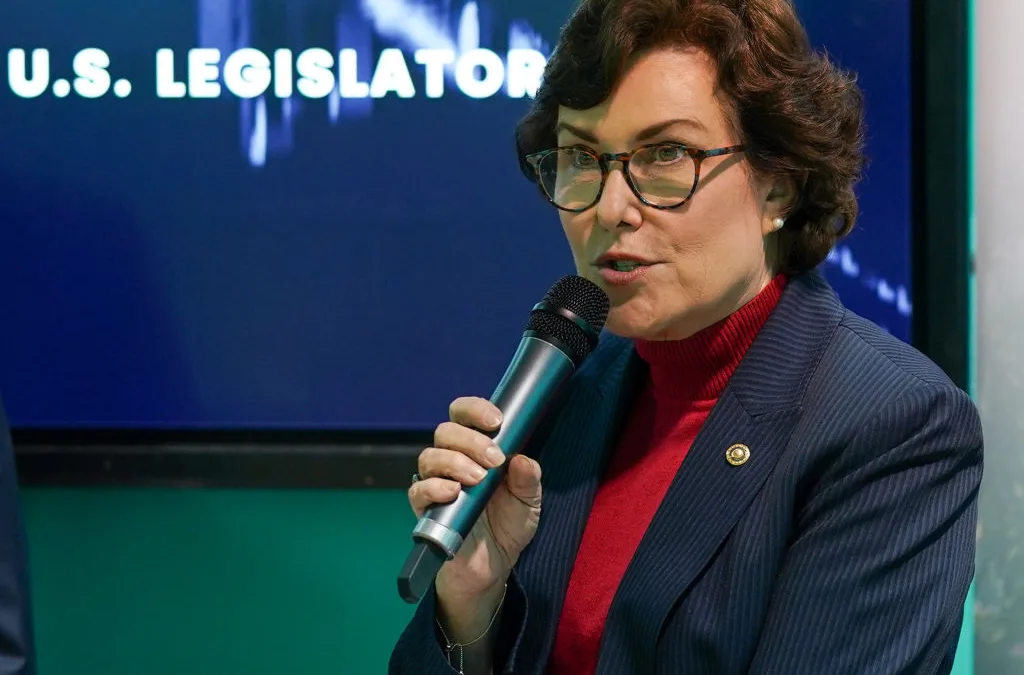
Rosen supports bill to study health defects in children of vets exposed to toxins
The bill would establish a multi-agency task force to research diagnoses and treatments sought by the children of former service members who were...

‘It helped us try to recover’: How Nevada schools used American Rescue Plan funds to get through the pandemic
Nevada schools used the COVID-era relief funds to help students recover from learning loss and trauma, invest in classroom supplies, and pay...
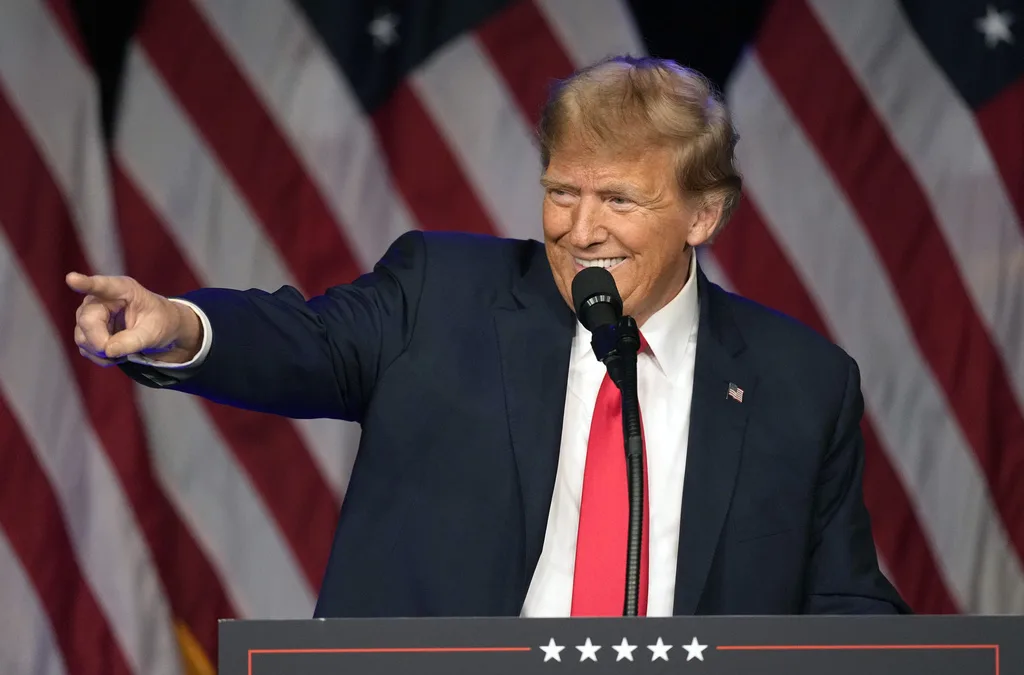
Report: Trump’s policies hurt Nevadans’ health and the environment
A recent report from the advocacy organization Climate Power details how the policies implemented during former president Donald Trump’s time in the...



